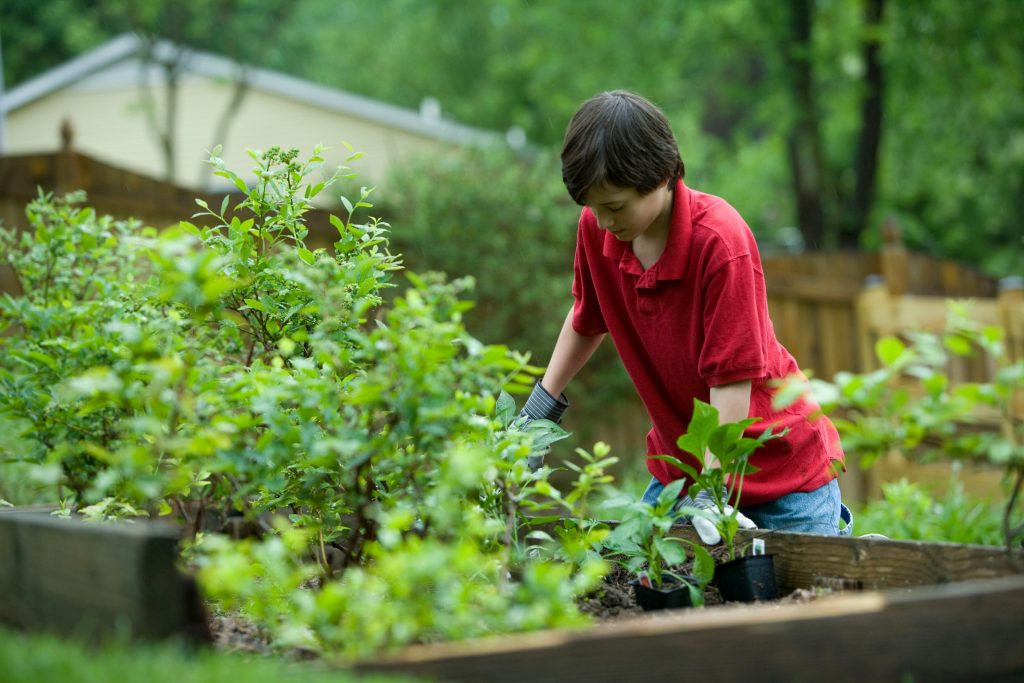
Gardening is more than a hobby. It’s a way to improve your life and feel better about yourself by cultivating plants in your yard, balcony, or even indoors. All the anxiety and psychological discomfort come from some type of stress. You may feel disappointed about how you tend to your health or need a way to shed some pounds. Believe it or not, gardening can help you take care of all the underlying problems making you think less about yourself and feeling down. This is known as horticulture therapy — a practice that improves mental and physical health by growing plants. A lot of gardeners often try to incorporate features such as Koi ponds into their gardens. This is because Koi ponds are often created and designed to bring a relaxing and peaceful energy to homes. With the garden being a sanctuary for daily life, Koi ponds enhance this. Of course, no pond is complete without the correct pond filters for koi ponds. Selecting the correct filter is important in order to minimise disruption and noise within your garden.
Anyone can benefit from plants and horticulture therapy, regardless of age, gender, or social status. Engaging in plant-based activities brings you closer to nature and allows you to center your thoughts towards yourself and your wellbeing. Because growing plants takes patience and dedication, this is a process that can occupy your time every day, or only occasionally. You are the one who decides what kind of garden to grow and sets the goals to achieve with it. And that is the first psychological benefit — control over decisions and consequences regarding your garden, and here are others.
Gardening can burn calories
It may not seem like it, but gardening can help you burn around 330 calories in one hour. As a moderate-intensity exercise, tending to plants may even get you recommended daily physical activity. For example, tending to your garden can burn more calories than walking at a moderate pace something that is encouraging for those looking to maintain the desired weight.
Because of this, gardening may be the push you need to start with physical activity. While not being satisfied with your appearance can cause psychological discomfort, it also works vice versa. So, gardening can empower you to improve self-esteem and healthily deal with your body image.
Being in the sun regulates vitamin D
Being worried about your health can be the source of additional stress. However, gardening can mitigate some of that worry by keeping your levels of vitamin D in check. Also known as the sunshine vitamin, this nutrient is produced in the skin when it’s exposed to sunlight. You can get vitamin D with supplements and certain foods, but gardening is more fun by far.
Although it’s primary benefits include keeping your bones healthy, vitamin D has other important roles. Besides boosting your immune system, preventing heart disease, and helping you lose weight, it can also regulate mood, and even reduce signs of anxiety and depression.
Being a gardener gives you purpose
Everyone is trying to achieve a sense of worth and purpose in their life. But sometimes, it’s not so easy to find your way and you need something to show you direction. As a hands-on activity, gardening can be perfect to work on something and see the results.
Starting your garden from scratch, by choosing plants and seeing them grow is an excellent way to experience the fruits of your labor. It can help you gain trust in yourself and show you that putting an effort pays off in the end. Moreover, it can be a good start to motivate yourself and take steps to change your life for the better.
Growing plants can boost your mood
Vitamin D is not the only thing you can get with gardening that will boost your mood. Digging the soil can increase the serotonin levels in your body thanks to friendly bacteria Mycobacterium vaccae. This microorganism is found in the soil and triggers the release of serotonin which can make you feel happy. Lack of serotonin is a known cause of depression, so spending time tending to your plants can act as an anti-depressant.
Dopamine is another chemical that is produced in your body because of gardening. It especially happens with people who grow vegetables because harvesting the products brings a sense of contentment.
Gardening can bring the family together
Family is vital for mental health and the psychological benefits of good relationships with your kin are countless. If you work during the day, then gardening may be a great opportunity to spend time with your kids. It will help you build something together and help you bond more over the same interest.
Sometimes, it’s easier to have uncomfortable conversations over relaxing activity, like tending to plants. You may feel anxious when having to ask your parents for a loan or telling your spouse what bothers you. This can be an unhealthy source of stress that may heavily weigh you down. But doing it while in nature and gardening can relieve the tension and give you the strength for uncomfortable conversations.
It deepens your connection to nature
Over time, as the modern world progressed, humans replaced nature with enclosed space. Spending most of the day inside can take a toll on your mind. For this reason, gardening is one of the ideas of outdoor activities that will help you rebuild a connection with nature.
When you are surrounded by greenery, your cortisol levels will decrease and you will feel less tensed. This stress hormone can make you feel irritable, unable to sleep, and anxious, as well as lead to some more serious conditions, like diabetes. So, spend time in your garden and let nature heal your troubles just by being there.
Food gardening can improve your health
People today are more aware of what kind of chemicals are used in food production and are worried about their health. This is why many turn to food gardening as a source of healthy products to prepare their meals. For this to succeed, choose vegetables and fruits that you have time to grow and will use for food.
Studies, like the one conducted in Brazil in 2016, have shown that pesticide exposure can be connected to mental disorders, like depression. These chemicals are commonly present in vegetables and fruits you buy in the stores or at the markets. Food gardening may require dedication, but you can use natural pest repellants that are not harmful and enjoy fresh and healthy produce in the end.
It keeps you in the present
Often, when unsatisfied with something in their lives, people spend time ruminating about the past choices they made. While reflecting your past is helpful to understand who you are today, regretting the experiences you had can lead to anger, stress, depression, and self-doubt. By taking care of your plants, you will occupy your mind with what you are currently doing, like pruning, weeding, and digging.
Gardening makes you stay focused on the task at hand and grounds you in the present by helping you temporarily or permanently forget your worries. It is a wonderful mindfulness activity that will teach you to appreciate what you have and help you to look forward, and not stay behind.
Tending to a garden can be a good stress release
Every day, you are exposed to stress. While it’s impossible to eliminate it from your life, you can do your best to manage it. From the moment you put on gardening gloves, you have decided to take control of your stress and not let it affect your life.
Stress makes you feel helpless, and gardening offers to regain a sense of control in your life that can in turn restore confidence. Being able to take care of something can be the necessary incentive to value yourself more and deal with stressful situations appropriately. Moreover, it will help you forget social media and stay off the internet for an hour or two — a known stress source these days.
It can be a way to lower blood pressure
High blood pressure is directly connected to increased stress levels and can have serious health consequences. When you don’t feel well, you are not happy and usually can’t function. It makes you feel like you are missing on life and that can make you agitated and depressed.
Since only 30 minutes of moderate physical activity can help you keep your blood pressure under control, gardening may be perfect to preserve your health. If there is not enough work in the garden, you can always try some side-activities, like lawn mowing and raking leaves. After all, keeping your garden decluttered and in order is also an important part of gardening.
Cultivating plants can better brain function
A number of studies suggest that gardening can improve brain function and even reduce the risk of Alzheimer’s disease and dementia. Spending time cultivating plants on a daily level can improve memory and concentration which decrease as people age. This happens because gardening can improve brain nerve growths which are related to memory.
When you garden, you employ several brain functions that can promote learning, problem-solving, and awareness of your surroundings. This is why many elderly people are encouraged to take up gardening to preserve their memory and fight off dementia, or at least slow down its progression.
Gardening can help you meet new people
Forming social connections is very important for mental health and through horticultural therapy, you can start building relationships with other people. One of the ways to meet other gardeners is by joining a gardening club or a community garden. Spending time with people who have similar and same interests will give you a sense of belonging and community.
If you are shy, this is also a great way to improve your communication and thinking skills. It will help you feel comfortable voicing your opinions and exchanging views with other people. In turn, your confidence and self-esteem will rise and help you feel more comfortable with yourself and others. Not to mention that sharing your successful gardening endeavors with people who understand is an encouraging tap on the back.
In the end
Horticulture therapy is recognized as a practice that can have many psychological benefits. Creating something by yourself, from start to finish, gives you a sense of accomplishment and builds confidence. It also brings control over one aspect of your life that may inspire expanding it to more. While gardening may be challenging and it doesn’t guarantee success every time, it’s a perfect way to learn to pick yourself up after a failure. And moving forward is one of the greatest lessons a human can learn in their lifetime.

